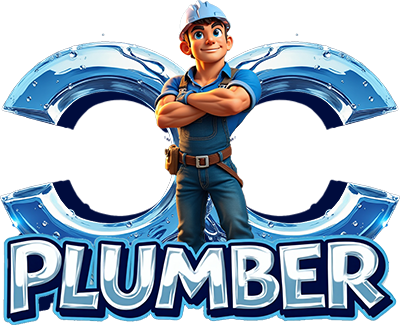Low water pressure can turn everyday tasks like showering or washing dishes into frustrating experiences. It’s a common problem, but identifying the root cause is key to restoring normal flow. In this post, we’ll explore the possible reasons for low water pressure and what you can do to fix it.
Common Causes of Low Water Pressure
- Clogged Pipes
Over time, mineral buildup or debris can clog your pipes, reducing water flow. This is especially common in homes with hard water or older plumbing systems. - Leaking Pipes
Even a small leak in your plumbing can lead to a noticeable drop in water pressure. Signs of a leak might include damp spots, unusual water bills, or visible drips. - Faulty Fixtures
Sometimes the issue isn’t with your plumbing but the fixtures themselves. Faucets and showerheads can become clogged with sediment or limescale, restricting water flow. - Water Main Issues
Problems with your municipal water supply, such as a broken water main or scheduled maintenance, can cause low water pressure. Check with your local water provider to see if this might be the issue. - Pressure Regulator Problems
If your home has a water pressure regulator, it could be malfunctioning. A faulty regulator can cause water pressure to drop or fluctuate. - Peak Water Demand
If everyone in your neighborhood is using water simultaneously—like during early mornings or evenings—it could reduce the pressure in your home.
Steps to Troubleshoot Low Water Pressure
- Check Your Fixtures
Test all faucets and showerheads to see if the issue is isolated to one area. If so, clean or replace the affected fixture. - Inspect for Leaks
Look for signs of leaks in your plumbing, including water stains, damp areas, or unexplained puddles. A professional plumber can also help detect hidden leaks. - Test Your Water Pressure
Use a water pressure gauge to measure the pressure at your outdoor spigot. Ideally, it should read between 40 and 60 PSI. Anything below 40 PSI may indicate an issue. - Contact Your Water Provider
If the issue persists, check with your water utility company to see if there are supply issues in your area. - Call a Professional Plumber
For persistent or complex water pressure problems, it’s best to call a licensed plumber. They can diagnose and resolve the issue quickly, saving you time and frustration.
Why It’s Important to Fix Low Water Pressure
Low water pressure can be more than an inconvenience—it can signal underlying plumbing problems that, if left untreated, may lead to costly repairs. Addressing the issue early ensures your home’s plumbing system stays in good shape and prevents further damage.
If you’ve noticed weak water flow from your faucets or shower, it might seem like a minor inconvenience. However, low water pressure can signal a deeper plumbing issue that, if ignored, could lead to costly repairs and water damage. Here’s why you should address low water pressure as soon as possible:
- It Can Indicate Hidden Leaks
Low water pressure could mean there’s a hidden leak somewhere in your plumbing system, potentially causing damage behind walls or under floors. Left unchecked, leaks can lead to mold growth, structural damage, and high water bills. - It Wastes Time & Reduces Efficiency
Nobody wants to spend extra time waiting for their sink to fill, their shower to rinse off, or their washing machine to complete a cycle. Low water pressure reduces the efficiency of daily household tasks, leading to frustration and wasted time. - It May Be a Sign of Pipe Blockages
Mineral buildup, debris, or corrosion inside pipes can restrict water flow, reducing pressure over time. Ignoring these issues can lead to complete pipe blockages, requiring more expensive repairs or replacements. - It Can Damage Appliances
Many household appliances—such as water heaters, dishwashers, and washing machines—rely on a steady flow of water to function properly. Low water pressure can cause these appliances to work harder, potentially leading to premature wear and costly repairs. - It Might Be a Problem with Your Water Main
If the low pressure is affecting your entire home, the issue could be with the main water supply line. A damaged or aging main line can cause serious plumbing problems, including leaks under your property, which can lead to foundation damage. - It Can Affect Your Water Quality
Low water pressure can sometimes indicate contamination risks in your plumbing system. If there’s a crack in your pipes, dirt and bacteria can enter, compromising your water quality and posing a potential health risk.
Need Help with Low Water Pressure?
If you’re dealing with low water pressure and aren’t sure what to do, we’re here to help! At Cooper City Plumber, we specialize in diagnosing and fixing low water pressure issues. Whether it’s a leak, blockage, pipe corrosion, or water supply issue, our expert plumbers will identify the root cause and restore proper water pressure to your home.
Don’t let low water pressure slow you down—contact us today to get started!

